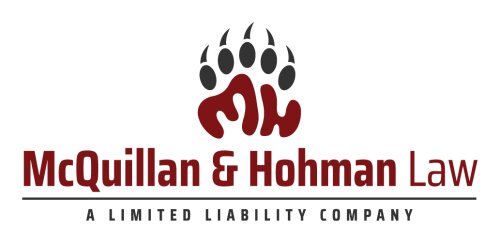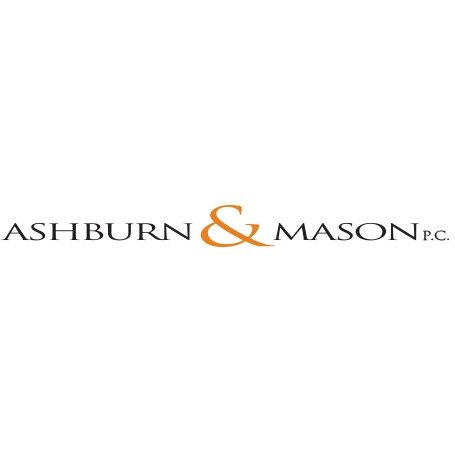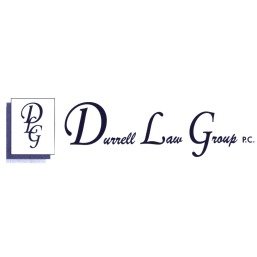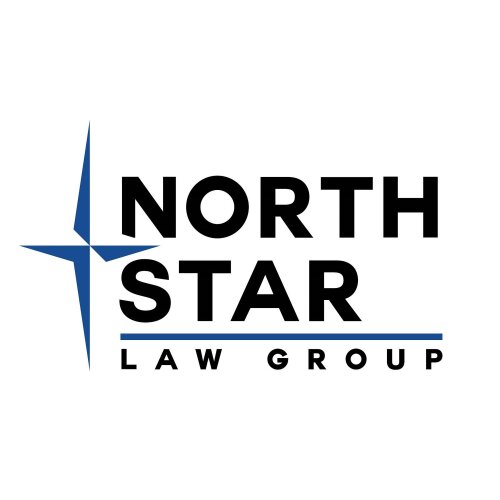Best Antitrust Litigation Lawyers in Alaska
Share your needs with us, get contacted by law firms.
Free. Takes 2 min.
Or refine your search by selecting a city:
List of the best lawyers in Alaska, United States
About Antitrust Litigation Law in Alaska, United States
Antitrust litigation in Alaska is the process through which individuals, businesses, or government agencies address alleged violations of laws designed to promote fair competition and prevent monopolies within the state's marketplaces. These laws are vital in ensuring that companies do not engage in unfair business practices, such as price fixing, market allocation, or abuse of market dominance. In Alaska, as in the rest of the United States, antitrust litigation may be brought under both federal and state statutes. The primary federal statutes include the Sherman Act, Clayton Act, and Federal Trade Commission Act, which are enforced at both the national level and, through parallel laws and regulations, at the state level in Alaska.
Why You May Need a Lawyer
Antitrust litigation is complex and can deeply impact consumers, businesses, and economic growth. Individuals or companies may seek the guidance of a lawyer for several reasons:
- Challenging or defending against allegations of price fixing, bid rigging, or market sharing among competitors.
- Facing investigations by government agencies regarding anti-competitive behaviors.
- Reviewing or contesting mergers or acquisitions that may reduce competition within Alaska.
- Understanding rights and obligations under federal and state antitrust laws.
- Seeking damages or restitution due to monopolistic practices by larger competitors.
- Complying with complex reporting and documentation requirements during investigations or litigation.
- Protecting your business from unfair practices such as exclusive dealing agreements or predatory pricing.
Local Laws Overview
While federal antitrust law is robustly enforced, Alaska also has its own statutes addressing antitrust concerns. The Alaska Unfair Trade Practices and Consumer Protection Act is a key state law that covers various forms of unfair competition and deceptive business practices. This act empowers the Attorney General of Alaska to pursue legal action against businesses or entities violating its provisions. Additionally, Alaska cooperates with federal agencies like the U.S. Department of Justice and the Federal Trade Commission in enforcing opposition to anti-competitive conduct. Local courts are capable of adjudicating antitrust disputes under both federal and state law, and private parties may bring lawsuits to seek damages or injunctive relief.
Frequently Asked Questions
What is antitrust litigation?
Antitrust litigation involves legal actions taken to challenge or defend against anti-competitive conduct, such as monopolization, price fixing, bid rigging, or unfair trade practices that harm competition and consumers.
How do federal and Alaska state antitrust laws interact?
Both sets of laws often apply in Alaska. Federal laws, like the Sherman Act, work alongside the Alaska Unfair Trade Practices and Consumer Protection Act, providing a dual layer of enforcement and protection against anti-competitive behavior.
Who enforces antitrust laws in Alaska?
Antitrust laws are enforced by federal agencies, such as the Department of Justice and the Federal Trade Commission, as well as by the Alaska Attorney General’s Office at the state level.
Can individuals or businesses file private lawsuits under antitrust laws in Alaska?
Yes, both consumers and businesses harmed by anti-competitive conduct can bring private lawsuits seeking damages or injunctive relief under federal or state law.
What kinds of business practices may lead to antitrust litigation?
Common triggers include price fixing, bid rigging, market or customer allocation agreements, predatory pricing, exclusive dealings, unlawful mergers, and monopolistic conduct.
What penalties can result from violating antitrust laws in Alaska?
Penalties may include fines, damages (sometimes tripled), injunctions, divestment of assets, and in severe cases, criminal prosecution and imprisonment for individuals involved.
How can I tell if my business practices are at risk of violating antitrust laws?
If your business collaborates closely with competitors, controls significant market share, or implements restrictive agreements regarding pricing, territories, or exclusive dealing, it is prudent to consult an attorney.
What should I do if I receive notice of an antitrust investigation?
Immediately seek legal counsel experienced in antitrust matters to protect your rights, navigate document requests, and plan an appropriate response.
Are all monopolies illegal under antitrust laws?
No, only monopolies that are acquired or maintained through anti-competitive conduct are illegal. Having a dominant market position itself is not against the law.
How long do antitrust litigation cases typically take in Alaska?
These cases can span from several months to years, depending on the complexity, the level of investigation required, and whether the matter is settled or proceeds to trial.
Additional Resources
For more information and assistance with antitrust issues in Alaska, consider contacting the following organizations and agencies:
- Alaska Attorney General's Office - Consumer Protection Unit
- Federal Trade Commission (FTC) - Bureau of Competition
- U.S. Department of Justice - Antitrust Division
- American Bar Association - Section of Antitrust Law
- Local law libraries and bar associations
These entities can provide information on filing complaints, understanding your rights, and locating qualified legal assistance.
Next Steps
If you believe you are affected by anti-competitive conduct or are facing an antitrust investigation in Alaska, consider the following steps:
- Document all relevant business activities, communications, and agreements.
- Contact a lawyer experienced in antitrust litigation to assess your specific situation.
- Consult governmental resources or consumer protection offices for information.
- Preserve all records and communications related to the alleged conduct.
- Avoid discussing the investigation or legal matter with others outside of your legal counsel.
The sooner you seek experienced legal advice, the better equipped you will be to navigate Alaska's antitrust laws, protect your interests, and uphold fair competition in the marketplace.
Lawzana helps you find the best lawyers and law firms in Alaska through a curated and pre-screened list of qualified legal professionals. Our platform offers rankings and detailed profiles of attorneys and law firms, allowing you to compare based on practice areas, including Antitrust Litigation, experience, and client feedback.
Each profile includes a description of the firm's areas of practice, client reviews, team members and partners, year of establishment, spoken languages, office locations, contact information, social media presence, and any published articles or resources. Most firms on our platform speak English and are experienced in both local and international legal matters.
Get a quote from top-rated law firms in Alaska, United States — quickly, securely, and without unnecessary hassle.
Disclaimer:
The information provided on this page is for general informational purposes only and does not constitute legal advice. While we strive to ensure the accuracy and relevance of the content, legal information may change over time, and interpretations of the law can vary. You should always consult with a qualified legal professional for advice specific to your situation.
We disclaim all liability for actions taken or not taken based on the content of this page. If you believe any information is incorrect or outdated, please contact us, and we will review and update it where appropriate.
Browse antitrust litigation law firms by city in Alaska
Refine your search by selecting a city.

















